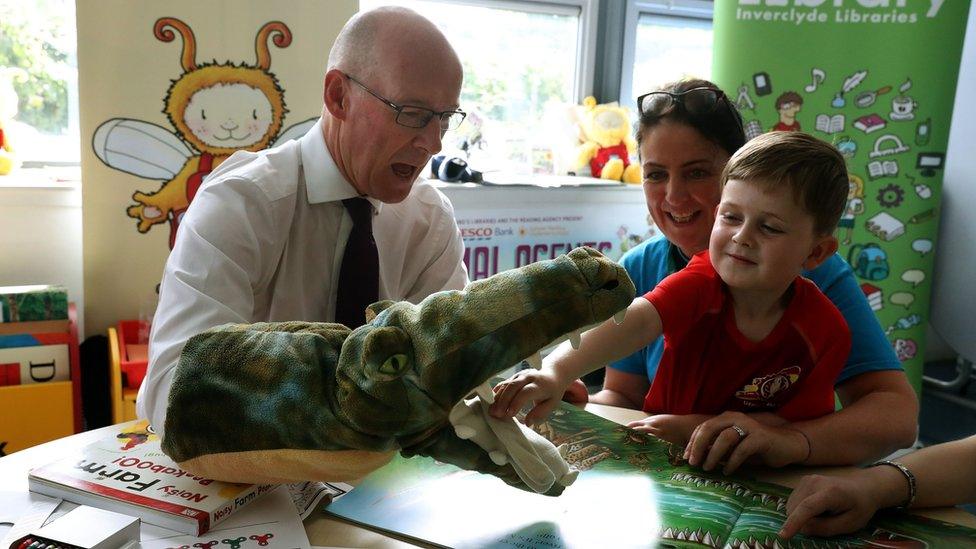John Swinney 'committed' to assessments for P1 pupils
- Published
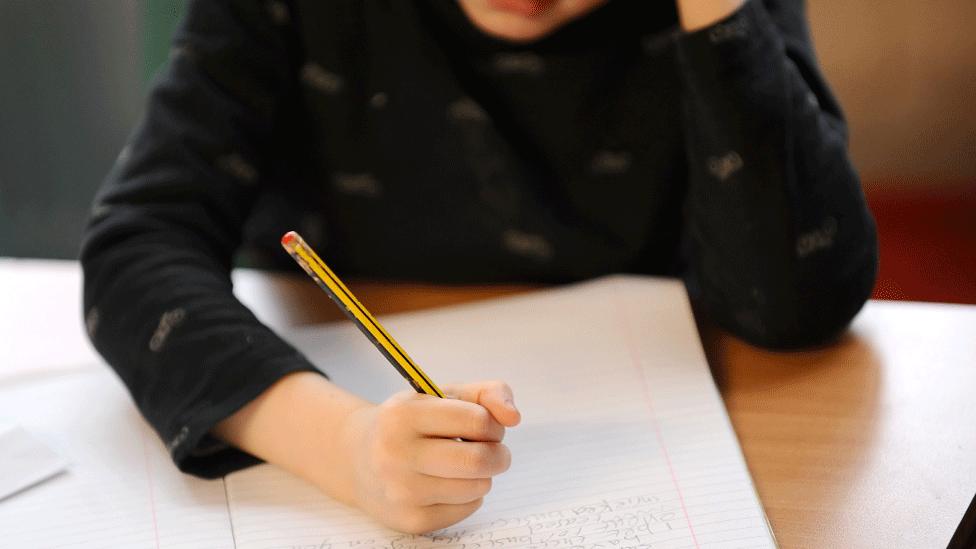
The new standardised tests assess pupils' literacy and numeracy skills
Education Secretary John Swinney has insisted the government is "committed" to assessments for P1 pupils despite fresh opposition calls to scrap them.
The tests were introduced a year ago in a bid to collect more data on pupils to help inform teachers about progress.
All of Holyrood's opposition parties oppose tests for the youngest pupils, and want to put this to a vote.
But Mr Swinney said the tests were "vital" in making sure issues pupils might have were addressed "pronto".
Meanwhile, fresh legal guidance sent to councils has underlined that parents have no legal right to withdraw their children from the tests.
Campaigners have been urging parents to opt their children out of the computer-based assessments, but the guidance - issued jointly by the government and the Association of Directors of Education - says this is a discretionary matter for head teachers.
It says: "This means that they cannot be seen as compulsory, but also that there cannot be a legal right for parents to withdraw their children from the assessments, or indeed any other part of the school curriculum (with the exception of some parts of religious observance and instruction).
"In practice, however, should any parents or carers have any particular concerns about their child's participation in the [assessments], they should discuss this with their school with a view to reaching agreement on whether the child will undertake the assessments."
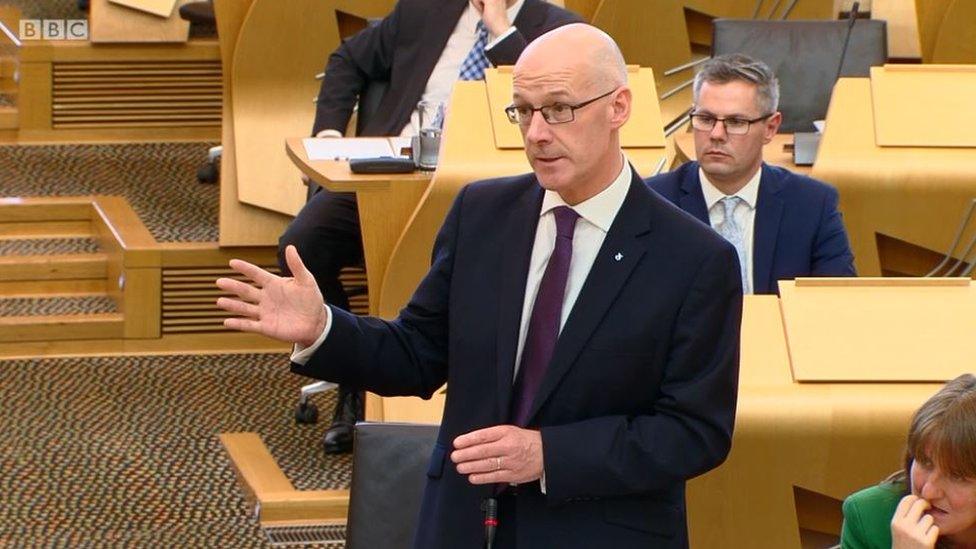
John Swinney told MSPs that he was committed to the tests "at all stages"
The standardised assessments were introduced for P1, P4, P7 and S3 pupils last year, with the government recently announcing some changes after reviewing how they were operating.
A campaign encouraging parents to "opt out" of the tests is being run by the Upstart Scotland group, which ultimately would like to see children begin their formal education at a later age. It is backed by other critics including the EIS teaching union.
The assessments for P1 pupils last about 45 minutes, and the government has stressed they are not "high-stakes tests" and that children do not pass or fail them.
'Positive experience'
Mr Swinney faced fresh calls to scrap the P1 assessments at Holyrood on Wednesday, but insisted he remained "committed to the assessments at all stages".
In a statement to MSPs, he predicted that changes announced in June would address the concerns that were raised during the first year of the new assessments.
He added: "I am confident that as we continue to refine and enhance the assessments they will prove to be a positive experience for children and young people and provide a range of valuable information for teachers and parents."
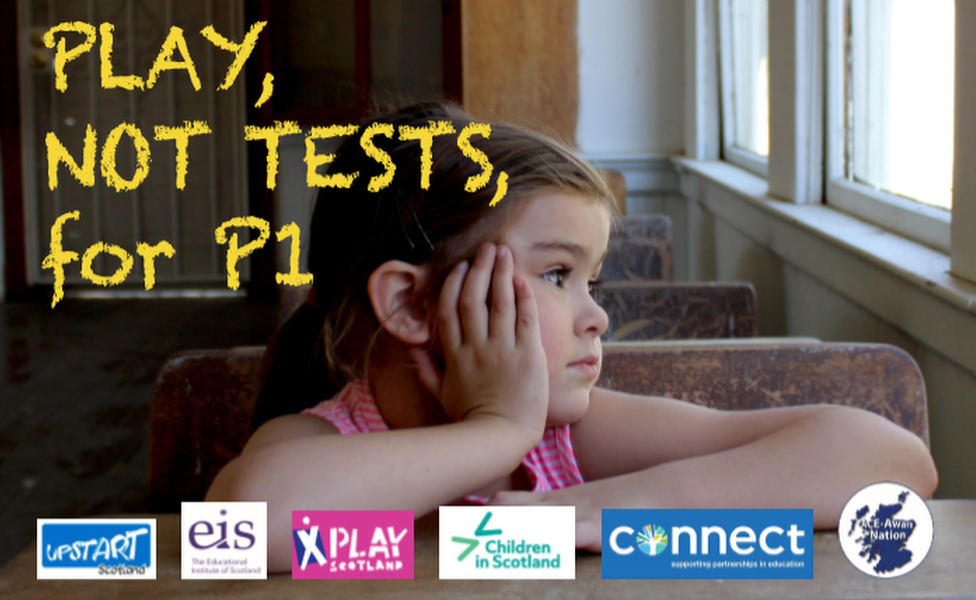
A number of different parents and teachers groups have backed a postcard campaign against P1 assessments
Mr Swinney said the assessments allowed teachers to understand pupils' progress and to plan the next phase of their learning, and were therefore a "key tool" in understanding the needs of pupils.
All opposition parties want the tests scrapped for P1 pupils, and MSPs urged Mr Swinney to change course following his statement.
Labour's Iain Gray said it was "the will of parliament" that the tests be dropped, calling for a vote to underline this, while Green MSP Ross Greer said a government defeat would happen "sooner or later".
He urged Mr Swinney to "cut his losses" and back down now - but the education secretary repeated his defence of the assessments, saying they help teachers identify issues so they can be addressed "pronto".
- Published28 August 2018
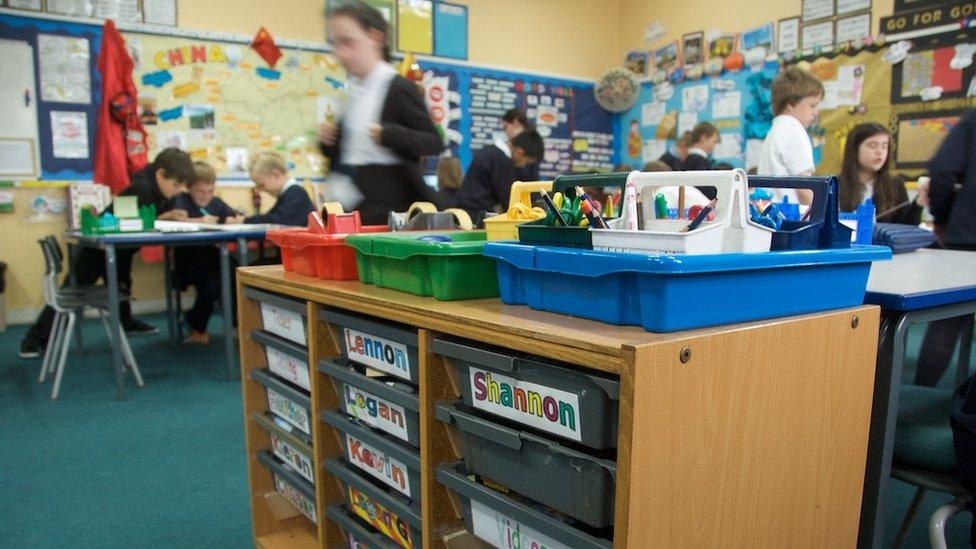
- Published16 August 2018
